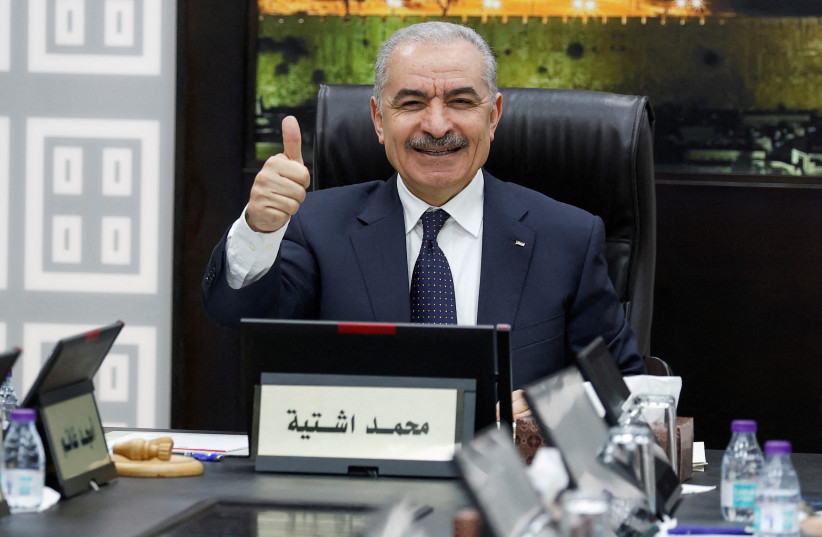As part of its fulfillment of the US demand for a “revitalized” Palestinian Authority, a new Palestinian government was only just sworn in Ramallah following the resignation of the prior one. However, a new expose by Palestinian Media Watch (PMW) showcases how PA “revitalization” featured at least two new ministers who indulge in religious incitement to terror and the demonization of Jews.
The PMW expose reveals racist and inciteful quotes made by two of new Palestinian ministers: Minister of Women’s Affairs Muna Al-Khalili and Minister of Religious Affairs, Muhammad Mustafa Najem.
Al-Khalili,former Chairwoman of the PLO’s General Union of Palestinian Women, is quoted in the expose as praising terrorist Dalal Al-Mughrabi who shot and murdered 37 Israelis in a terror attack against a civilian bus during the 70s, lauding Hamas’s October 7th massacre as a method of resistance, and holding a vigil honoring terrorists who murdered dozens of Israelis during the second intifada as “heroic prisoners”.
As for new Minister for Religious Affairs, Muhammad Mustafa Najem, the expose showed how he repeatedly spewed antisemitic rhetoric against Jews as a former preacher, condemning the alleged characterization of Jews by “conceit, pride, arrogance, rioting, disloyalty, and treachery” and referring to Jews with the popular Islamist antisemitic depiction of being “apes and pigs”.
PMW chair, Itamar Marcus, called on Israel and the United States, which has led the call for a “revitalized” PA, to demand that Najem and Al-Khalili and any other terror supporters in the new PA government be immediately replaced, adding “If the previous PA terror-supporting government is replaced by a new terror-supporting government, the PA is making a mockery of the US demand for “revitalization.”

Hamas-Fatah wedges resurface
The former Palestinian government led by Prime Minister Ahmad Shtayyeh resigned in a sudden manner late February, stirring up a wave of rumors and speculations regarding the reasons, implications, and repercussions.
Some have speculated that the resignation was made as a concession to US pressure to “revitalize” the Palestinian Authority, while others claimed that it was orchestrated to lay the groundwork for the reintroduction of Hamas into the officially recognized Palestinian governing body at some point in the future, despite denial from Palestinian Authority officials.
Hamas then rejected the forming of the new government without representation of the terror group, criticizing the appointment and labeling it as an individual decision focused on superficial formalities rather than substantive issues. The terror group also argued that the new Palestinian government would lack national consensus, rejecting what they saw as a divisive policy, calling for national unity, the formation of a unified leadership, and the holding of free, democratic elections to achieve consensus and unity.
From their part, Fatah, which controls the PLO in large part, accused Hamas of bringing about a catastrophe ‘worse than the one of 1948’ without consulting any other Palestinian faction, reminding of Hamas's bloody coup of 2007 against their brethren in Fatah and teasing the Iran-backed group, wondering ironically whether they preferred to instate an Iranian prime minister instead.
